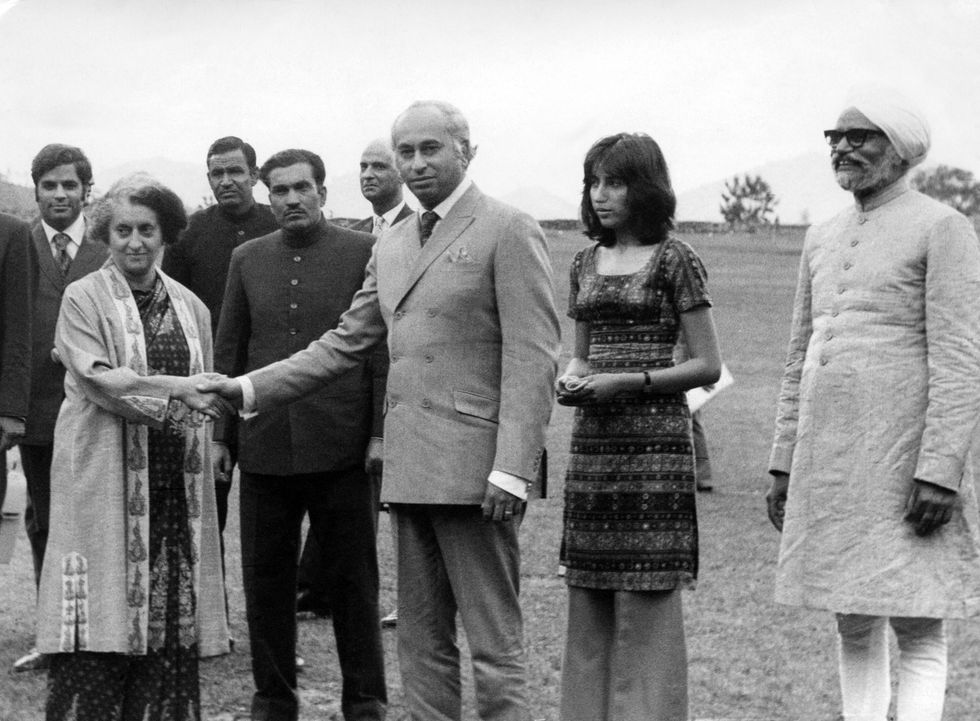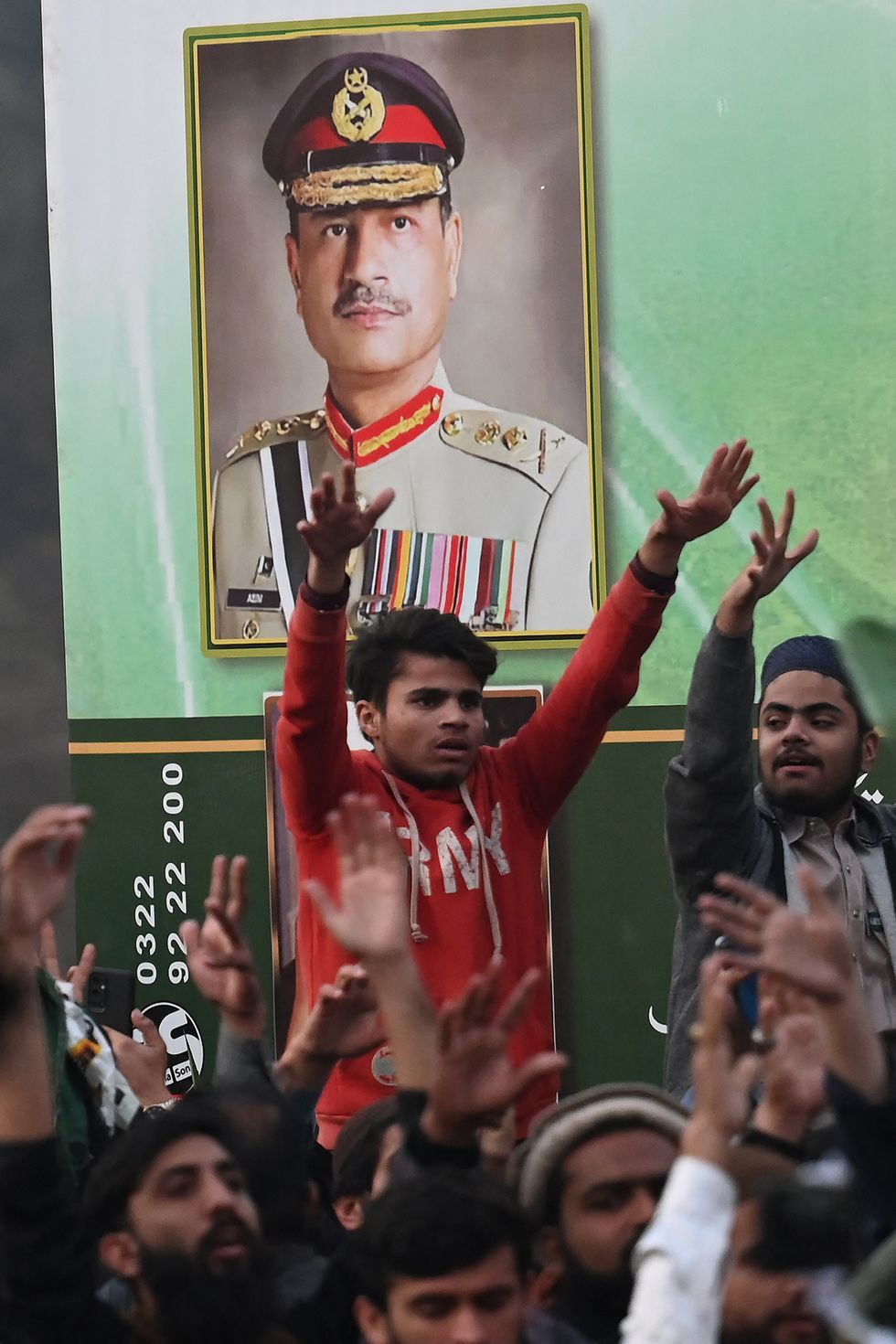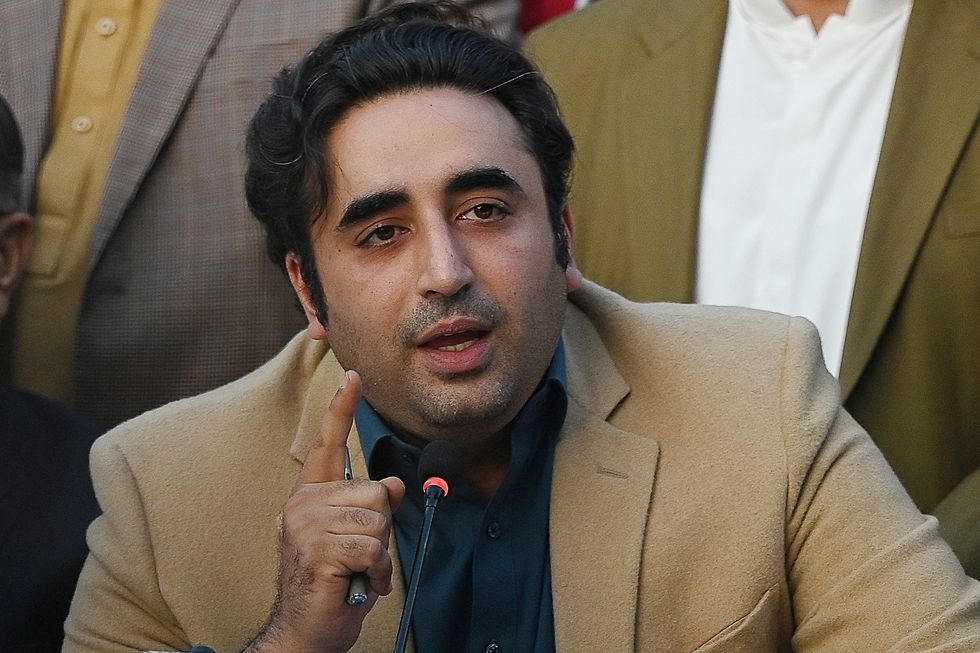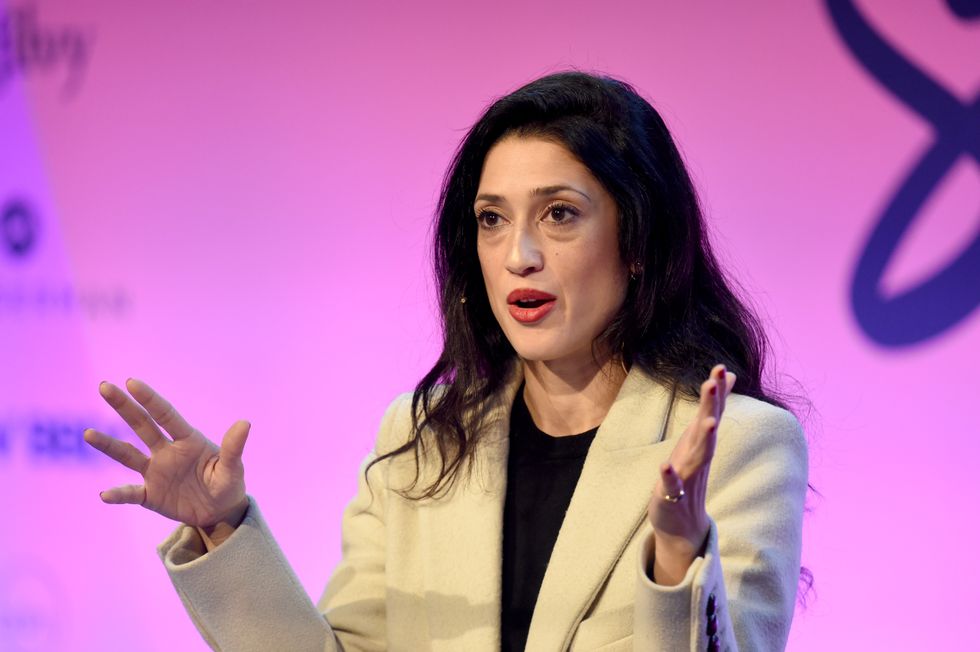THE year is 2025, 78 years after the creation of Pakistan as a homeland for Muslims, as imagined by Muhammad Ali Jinnah for those who did not wish to remain behind in India. Given its rich resources and the fertile fields of the Punjab, Pakistan should today be one of Asia’s richest economies, possibly even ahead of India.
Take the example of Sir Anwar Pervez, founder of the Bestway group, who is probably the most respected Pakistani-origin entrepreneur in the UK. There should be many people like him in Pakistan.
Why hasn’t this happened?
The truth is Pakistan is not going to progress so long as the army is in charge. And the tentacles of the army reach deep into Pakistani society.
And to justify its existence, the army has to hold up India as the arch enemy. Anyone can see the status of Kashmir is not going to change. Nevertheless, the Pakistan army chief, General Asim Munir, told a conclave of overseas Pakistanis in Islamabad earlier this month that the country would continue to stand by the Kashmiri people in the “struggle against the Indian occupation”.
“It was our jugular vein, it is our jugular vein, we will not forget it,” he said.
In the same address, the general called upon the people of the country to tell stories to children so that they don’t forget they are “different from Hindus”.
In my experience, Indians and Pakistanis, Hindus and Muslims, get along pretty well in the UK. I know of several happy marriages. I like to think that, as human beings, we are not that different.
The general wants children to grow up drinking hatred of India and Hindus with their mother’s milk.
“You have to tell Pakistan’s story to your children so that they don’t forget that our forefathers thought we were different from Hindus in every possible aspect of life.”

Shortly afterwards, on April 22, four gunmen emerged from thick forests and indiscriminately killed 26 people – mostly tourists from outside Kashmir – at a beauty spot near the resort town of Pahalgam. Three dozen others were injured.
If the aim was to disrupt the flourishing tourist economy, the assailants have certainly succeeded. There have been 80 per cent cancellations of hotel and houseboat bookings, so local people will suffer.
Rang De Basanti actor Atul Kulkarni visited Pahalgam after the attacks and shared a picture of a virtually empty Mumbai-Srinagar flight.
“Crew said these (previously) ran full,” he wrote in a post on X. “We need to fill them again.”
It will be a while before families feel confident enough to return.
Who were the gunmen and where did they come from?
We don’t know, since they have melted away. We have seen in numerous attacks in the West that even a lone gunman can cause havoc. But we can judge from the Mumbai massacre of 2008, when 10 young men came from Pakistan and carried out a vicious slaughter in India’s commercial capital. They were probably trained by elements within the Pakistani intelligence services. The same thing may have happened again.
But the connection between these groups and the authorities is nebulous.
Pakistan is ill-served by a certain brand of bellicose politician. Following India’s suspension of the Indus Waters Treaty, Bilawal Bhutto-Zardari declared “either our water will flow or their blood will flow”.
He is a bit of a feral kid from a dysfunctional family which has seen more than its share of spilt blood. His grandfather, Zulfikar Ali Bhutto, said, “Thank god, Pakistan is saved,” after the West Pakistan army carried out a genocide in East Pakistan in 1971.
In 1979, he was hanged by the military dictator, General Zia-ul-Haq, who was himself blown up by his own people in a Hercules aircraft in 1988.
Bilawal’s mother, Benazir Bhutto, was assassinated in 2007 in Rawalpindi. It is alleged that Benazir had her brother, Murtaza Bhutto, who was emerging as a political rival, gunned down in the streets of Karachi in 1996. At least, that is what Murtaza’s daughter, Fatima Bhutto, claimed in her book, Songs Of Blood And Sword: A Daughter’s Memoir.
Bilawal, whose father Asif Ali Zardari was president of Pakistan, has added Bhutto to his surname in an attempt to benefit from the family’s political legacy.

But he is a brash boy, who probably does not understand what war means.
He was slapped down by a senior Muslim leader in India. Asaduddin Owaisi, who heads the All India Majlise-Ittehadul Muslimeen (AIMIM), said: “Don’t say childish things. His mother was killed by their homegrown terrorists. Does he even know what he is saying?”
The Indian author and Congress MP, Shashi Tharoor, added his voice: “The Pakistanis have to understand that they simply cannot kill Indians with impunity. We have no designs on Pakistan, but if they do something, they must be prepared for a response. If blood is going to flow, it will possibly flow more on their side than ours.”
While I was in India recently, I don’t think Pakistan cropped up even once in conversations. Most people just want to get on with achieving a better standard of living. If things had gone right, the two countries would have settled down to a relationship between friendly neighbours. Bilateral trade would have added to prosperity on both sides of the border. Today, India refuses to travel to Pakistan to play cricket.
Instead, nearly eight decades after Partition, there is talk one again of military conflict.
India’s prime minister, Narendra Modi, said his government will “identify, track and punish every terrorist and their backers. We will pursue them to the ends of the earth. Terrorism will not go unpunished. Every effort will be made to ensure that justice is done.”

Pakistan’s prime minister Shehbaz Sharif responded: “The recent tragedy in Pahalgam is yet another example of this perpetual blame game, which must come to a grinding halt. Continuing with its role as a responsible country, Pakistan is open to participating in any neutral, transparent and credible investigation.”
He also said: “Water is a vital national interest of Pakistan, our lifeline…. Let there be no doubt at all its availability will be safeguarded at all costs and under all circumstances.
“Therefore, any attempt to stop, reduce or divert the flow of water belonging to Pakistan under the Indus Waters Treaty would be responded to with full force and might. Nobody should remain under any kind of false impression and confusion.
He added: “As founder of the nation, Quaid-i-Azam Mohammad Ali Jinnah rightly said, Kashmir is the jugular vein of Pakistan. Unfortunately, this globally recognised dispute remains unresolved despite multiple UN resolutions.
“Let there be no doubt, Pakistan shall continue to support the right of self-determination of the Kashmiri people till they achieve their rights through their great struggle and sacrifices.”
Maleeha Lodhi, a former Pakistani high commissioner in London, said: “The notion of limited war waged under the nuclear threshold is fraught with untold risks. Such a scenario should be avoided at all costs. Even though there is little appetite for this by the Indian side, a backchannel must be re-established without delay to avoid any miscalculation, manage the crisis and prevent it from spinning out of control. The alternative is too terrifying to contemplate.”

In London a Pakistani diplomat was caught on camera making a threatening throat-slitting gesture towards the Indian protesters from the balcony of the high commission building in central London. He should be recalled immediately.
And an Indian origin man, Ankit Love, 41, was arrested and charged with smashing the windows of the Pakistani diplomatic mission.
These are just the kind of events that must be avoided.
The underlying problem remains unchanged. How do the people of Pakistan escape the clutches of the army?






 Nigel Farage
Nigel Farage Rupert LoweGetty Images
Rupert LoweGetty Images











 Rajan offers the pind daan in honour of his father and ancestors
Rajan offers the pind daan in honour of his father and ancestors 


 LONDON, ENGLAND - JUNE 22: Baroness Floella Benjamin speaks during the unveiling of the National Windrush Monument at Waterloo Station on June 22, 2022 in London, England. The photograph in the background is by Howard Grey. (Photo by John Sibley - WPA Pool/Getty Images)
LONDON, ENGLAND - JUNE 22: Baroness Floella Benjamin speaks during the unveiling of the National Windrush Monument at Waterloo Station on June 22, 2022 in London, England. The photograph in the background is by Howard Grey. (Photo by John Sibley - WPA Pool/Getty Images)
 Ed Sheeran and Arijit Singh
Ed Sheeran and Arijit Singh Aziz Ansari’s Hollywood comedy ‘Good Fortune’
Aziz Ansari’s Hollywood comedy ‘Good Fortune’ Punjabi cinema’s power-packed star cast returns in ‘Sarbala Ji’
Punjabi cinema’s power-packed star cast returns in ‘Sarbala Ji’ Mahira Khan
Mahira Khan ‘Housefull 5’ proves Bollywood is trolling its own audience
‘Housefull 5’ proves Bollywood is trolling its own audience Brilliant indie film ‘Chidiya’
Brilliant indie film ‘Chidiya’  John Abraham
John Abraham Hina Khan and her long-term partner Rocky Jaiswal
Hina Khan and her long-term partner Rocky Jaiswal  Shanaya Kapoor's troubled debut
Shanaya Kapoor's troubled debut Sana Yousuf
Sana Yousuf